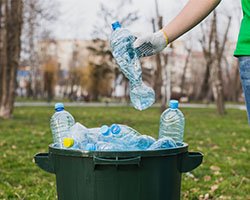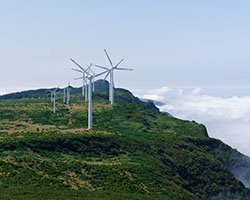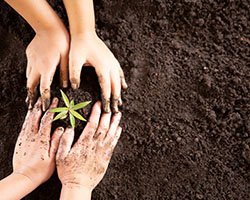Sustainable Development Goals
We are committed to playing a constructive role by contributing to the achievement of the following Sustainable Development Goals.
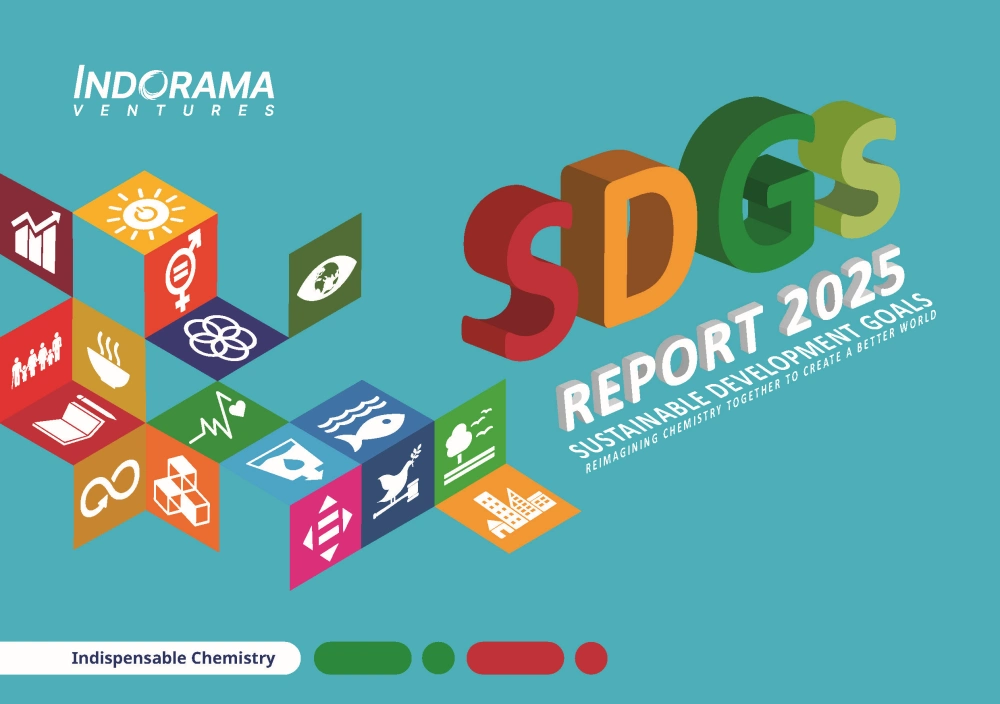
SDGs Report 2025
2024 SDGs progress
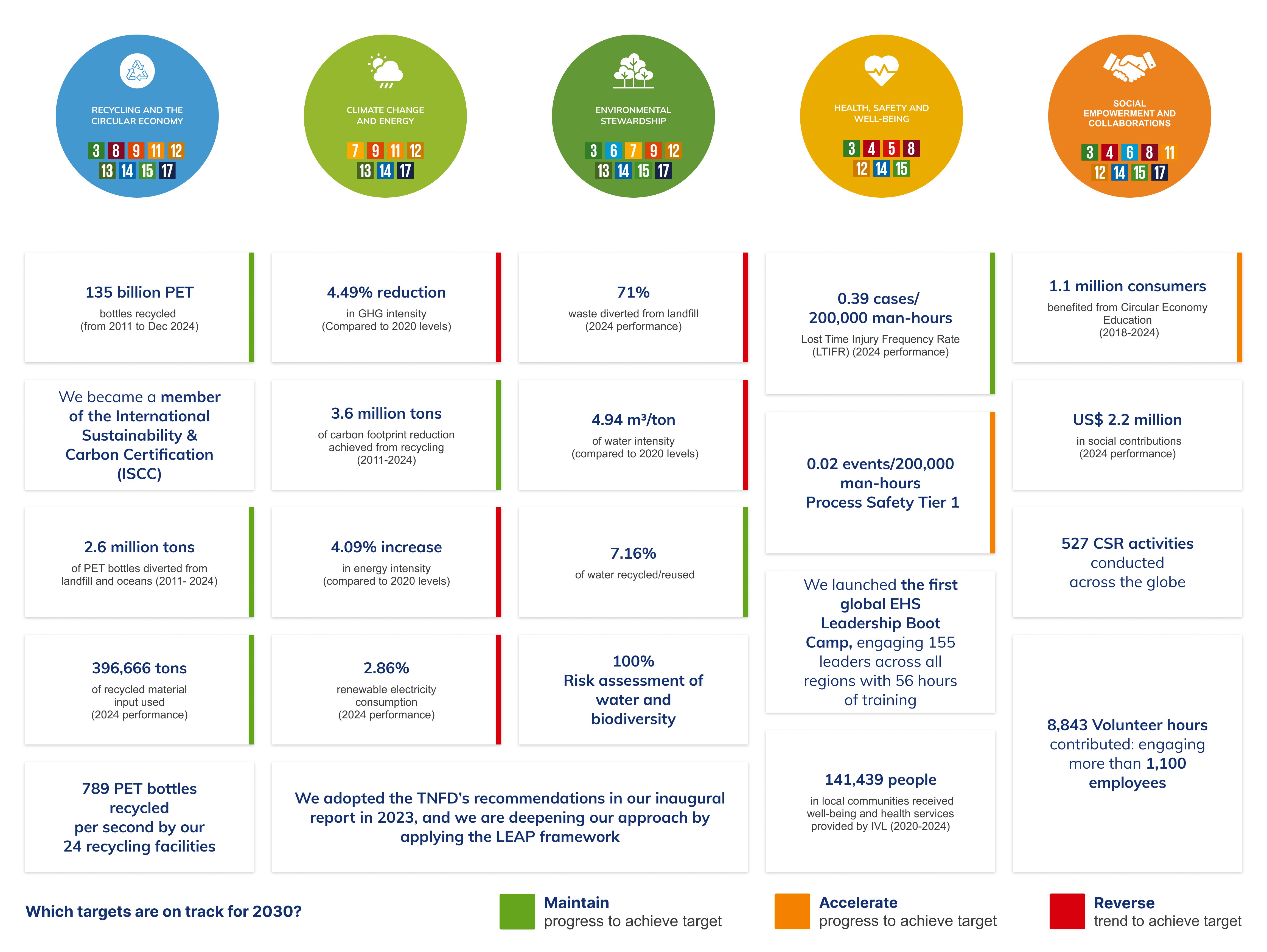

Indorama Ventures visited the UN Global Compact's headquarters in New York
Indorama Ventures visited the UN Global Compact's headquarters in New York, and had meetings with Ms. Sue Allchurch, Chief of Outreach and Engagement, and Mr. Maxell MacKenna, Manager of Fundraising and Sponsorships.
The purpose of these meetings was to discuss possible collaborative opportunities in their Supply Chain Pilot Program. This program helps leverage sustainable practices in supply chains pertaining to human rights, environment, labor, and anti-corruption, in line with the UN Global Compact principles. It can further contribute to net zero ambitions and the SDGs.
Indorama Ventures also took the opportunity to provide the company's SDGs Report to Ms. Allchurch and Mr. Maxell. They both appreciated the report and Indorama Ventures efforts and contributions in achieving UN SDGs.
-
-
Guaranteeing the health and safety of our products, employees and contractors
Outcomes
- Supported 25 associations and foundations, improving the lives of 4,600 vulnerable individuals.
- Improved the well-being of 10,270 people through community health programs.
- Promoted entrepreneurship and income generation in 10 communities, benefiting more than 530 individuals.
- 141,439 community care has been provided to beneficiaries through local community and voluntary groups (since 2020).
- Promoted diversity and social inclusion through 68 events that supported vulnerable groups, people with disabilities, refugees, low-income youth, and celebrated local cultures and religious traditions.
- US$ 2,213,203 for social contributions (Environment, Knowledge, and Community care)
- 1 employee fatality
- Total Recordable Injury Rate (TRIR): 0.60 cases/200,000 man-hours
- Lost Time Injury Frequency Rate (LTIFR): 0.39 cases/200,000 man-hours
Our Commitments
- Increasing access to quality and essential health care services, aiming to reach at least 100,000 people in communities by 2030.
- Reducing the Lost Time Frequency Injury Rate (LTIFR) to less than 0.46 cases per 200,000 man-hours by 2025, and less than 0.1 cases per 200,000 man-hours by 2050
-
-
Providing learning and development opportunities to all staff and promoting recycling education in society
Outcomes
- Recycling Education: Educated 1,112,958 people on recycling since 2018, Partnership with the Bangkok Metropolitan Administration (BMA) (launched in 2022)
- Engaged 6,686 students from 21 schools across four countries in STEM education and innovation.
- Provided 6,800 students across six countries with learning opportunities, quality education, and essential professional skills.
- Empowered 13,840 educators across 150 countries with our recycling teaching resources, driving sustainability education on a global scale.
- Equipped over 400,000 students with knowledge and skills to drive recycling, the circular economy, and sustainability through education and hands-on learning.
- A total of 21,701 employees, representing 80% of the Company’s workforce, have completed Lean Introductory and White Belt training. Additionally, 2,033 employees have been trained in IVEX Lean Six Sigma upper belts, accounting for 8% of the total workforce on a cumulative basis.
Our Commitments
- Educating one million consumers globally on recycling through various initiatives and channels, including our own, and in partnership with external parties, by 2030.
-
-
Supporting gender equality and the increased participation and advancement of women
Outcomes
- 24.73% of permanent employees are female.
- 21.50% of women hold top management positions.
- 381 employees with disabilities are part of the workforce.
Our Commitments
- Increasing the number of women in managerial and leadership positions
- Empowering vulnerable women to gain valuable skills positively impacting their lives
- No human rights violations
-
-
Managing sustainable water consumption and discharge, analyzing global water risk to minimize the water crisis
Outcomes
- 100% of water is treated before being discharged
- water intensity in 2024 : 4.94 m3 / ton of production
- 6.44% water intensity reduction against the 2025 target.
- 7.16% water reused / recycled
- Water Stress Analysis through the WRI Aqueduct Tool
Our Commitments
- Water intensity reduction: 10% by 2025 and 20% by 2030 (from 2020 levels)
- Increasing access to safe drinking water for communities in rural areas
-
-
Increasing the use of electricity from renewable sources where possible
Outcomes
- In 2024, we utilized a total of 719,985 GJ of renewable energy
- 2.86% Renewable Electricity Consumption
- Four plants utilizing renewable energy
- 56% of ISO 50001 certifications
- 17 onsite/offsite Solar installations
- 39,058 MWh of purchased renewable energy with certificates through PPAs in the US and Europe
Our Commitments
- Renewable electricity consumption: 10% by 2025 and 25% by 2030.
- 5% and 15% energy intensity reduction by 2025 and by 2030, respectively (from 2020 levels).
-
-
Providing decent working conditions, a non-discriminatory environment and equal opportunities in our operations and supply chain
Outcomes
- 86.10% global retention rate
- Employed 381 persons with disabilities
- 13% of our employees are below 30 years old
- 597,519 total training hours
Our Commitments
- Reducing the Lost Time Injury Frequency Rate (LTIFR) to less than 0.46 cases per 200,000 man-hours in 2025 and less than 0.1 cases per 200,000 man-hours in 2030.
-
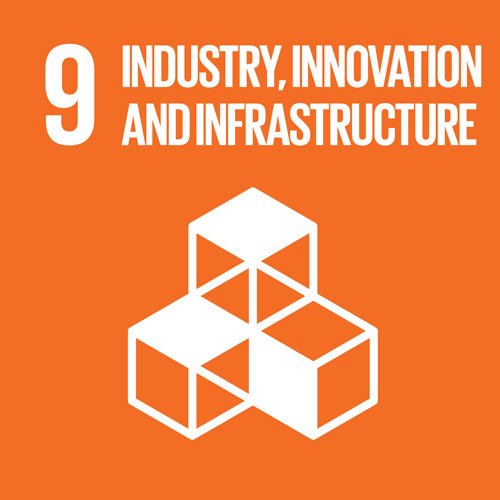
-
 Empowering sustainable development through investments in manufacturing, innovation and technology
Empowering sustainable development through investments in manufacturing, innovation and technologyOutcomes
- 464 New products introduced in 2024
- US$ 32.67 million in direct R&D spending
- 330 R&D employees / 26 R&D Centers globally in 2024
- 23 patents granted in 2024
- 103 projects with customers, suppliers and academia
- 2024 Vitality Index*: Fibers = 18%, Combined PET = 25.7% and Indovinya = 12.6%
Our Commitments
- At least 15% of revenue coming from sustainable products.
- 50% of products launched from 2025 and beyond to be classified as sustainable.
* Vitality Index: Revenue generated from the sales of products developed during the last five years.
** The previous name of the business division was Integrated Oxides and Derivatives (IOD). -
-
Strengthening efforts to protect natural heritage and reduce the adverse environmental impact with a focus on people in vulnerable situations in making sustainable cities and communities
Outcomes
- 396,666 tons equivalent to 26.4 billion bottles of post-consumer PET bottles diverted from landfill and oceans in 2024
- 71% of waste diverted from landfill in our operations
- Supported over 25 associations and foundations, improving the lives of over 4,600 vulnerable individuals
- Promoted entrepreneurship and income generation in 10 communities, benefiting over 530 individuals.
- Community investments more than US$ 1,768,456
Our Commitments
- Recycling 750,000 tons and 1,500,000 tons of post-consumer PET bale input per year by 2025 and by 2030
- Improving our operational eco-efficiency through sustainability initiatives and green projects.
- 90% waste diverted from landfill by 2025/2030.
-
-
Reducing the impacts of our products in the use phase and promoting ways to include recyclability and circularity
Outcomes
- We successfully recycled 135 billion PET bottles in 2024. Impacts achieved: 2.6 million tons of waste diverted from the environment, 3.6 million tons of carbon footprint reduction.
- 71% waste diverted from landfill
- 7.16% water reused / recycled
- 789 PET bottles recycled per second by our 20 recycling facilities
Our Commitments
- Recycling PET bottles: 50 billion bottles per year by 2025 and 100 billion bottles per year by 2030
- Water intensity reduction: 10% by 2025 and 20% by 2030 (from 2020 levels)
- 90% waste diverted from landfill by 2025/2030
- Educating one million consumers around the world on recycling by 2030
-
-
Improving resource use, energy efficiency, and developing strong low-carbon strategies
Outcomes
- 3.6 million tons of carbon footprint reduced by recycling post-consumer PET bottles
- US$ 1.9 million invested in energy efficiency and GHG reduction projects
- 105,680 tons of GHG reduction achieved through renewable energy consumption
- Aligned the COP21 and TCFD frameworks and recommendations in our 2025 Climate Change Strategy
- Achieved a B Rating in CDP’s Climate Change assessment in 2023
- 4.09% increase in energy intensity against target
- 4.49% reduction in GHG intensity against target
Our Commitments
- 5% energy intensity reduction by 2025 from 2020 levels
- 10% GHG intensity reduction (Scope 1 and 2) by 2025 from 2020 levels
- Committed to becoming a carbon neutral company
-
-
Preventing, reducing and collaborating with like-minded organizations to address waste in the oceans
Outcomes
- 396,666 tons equivalent to 26.4 billion bottles of post-consumer PET bottles diverted from oceans in 2024
- Prototype of Rescue Products from Recycled Fibers to Protect Marine Life
- Through our PET recycling operations, PET plastics can be diverted from various water basins, including The Chao Phraya and Gulf of Thailand in Thailand, Java in Indonesia, and The North Pacific in the Americas, where our recycling facilities are present.
Our Commitments
- Recycling 750,000 tons of post-consumer PET bale input per year by 2025
- Recycling PET bottles: 50 billion bottles per year by 2025 and 100 billion bottles per year by 2030
-
-
Reducing the risk of potentially adverse environmental impacts and monitoring the new areas near our operations
Outcomes
- 396,666 tons equivalent to 26.4 billion bottles of post-consumer PET bottles diverted from landfill in 2024
- 71% of waste diverted from landfill in our operations
- We adopted the TNFD’s recommendations in our inaugural report in 2023, and for 2025, we are deepening our approach by applying the LEAP framework.
- Biodiversity Risk Assessments were conducted since 2022 for 100% of our operations worldwide using the iBAT, ENCORE, and WWF tools.
- Renova Mamona Project: Enhancing Sustainable Communities In its second year, the Renova Mamona Project continued to advance regenerative agriculture and community development in the Quilombola community of Cordoaria in Camaçari, Brazil.
Our Commitments
- Protecting and restoring degraded forests and promoting sustainable ecosystems and biodiversity
- Reducing on-land plastic pollution by recycling 50 billion PET bottles per year by 2025
- 90% waste diverted from landfill by 2025
-
-
Partnering with organizations to intensify our contributions to achieve the goals and a circular economy
Outcomes
- Indorama Ventures Public Company Limited showcased its latest advancements in recycling and sustainability at the 29th United Nations Climate Change Conference (COP29), held from November 11 to 22 in Baku, Azerbaijan.
- Indorama Ventures’ Advocacy Transparency Report 2024 underscores our commitment to transparency and active engagement with lawmakers, policymakers, and industry associations.
- Indorama Ventures Showcases ‘Indispensable Chemistry’ and Sustainability at SX 2024. At Sustainability Expo (SX) 2024 in Bangkok
- In 2024, we contributed a total of US$ 4,266,578. This includes the establishment and strengthening of industry partnerships aimed at promoting sustainable practices, addressing global challenges, and supporting the achievement of the SDGs.
Our Commitments
- Partnering with organizations to intensify our contributions to the achievement of SDGs
- Partnering with organizations to intensify our contributions to the circular economy
- = Major
- = Moderate
- = Monitor
The 17 SDGs and 169 targets seek to eradicate poverty, strengthen human rights, and promote gender equality and the empowerment of women and girls. They are integrated and indivisible and balance the three dimensions of sustainable development: The economic, social and environmental. The goals and targets will stimulate action in areas of critical importance for humanity and the planet.
Indorama Ventures hereby pledge that by 2030, we shall collectively invest a total of Baht 1 billion, in approximate 45 projects and initiatives that directly support achieving the SDGs and commit to embedding the SDGs into the core of our business strategies and activities.
IVL's Key Focus Themes on SDGs
Achieving the SDGs by 2030 is highly ambitious. The private sector has an important role to play along with governments, institutions, and communities in delivering these goals. It is in the interest of businesses to engage in creating a more sustainable future.
Considering the nature of business, Indorama ventures is committed to play its role by contributing to the achievement of following UN SDGs. The fully coloured goals below are directly impacted by business activities which Indorama Ventures strongly supports. The faded goals are indirectly impacted by business activities which Indorama ventures keeps monitoring.
Recycling and Circular Economy
Bringing customers of recycled products into the product value chain cycle and developing ways to include recyclability into all products
Read moreClimate Change
Being fully aligned with the global initiatives agrred at the Paris Climate Conference (COP21) towards developing strong low-carbon strategies
Read moreProduct Stewardship
Reducing the risk of the adverse environmental, health and safety impacts of our products in use phase and disposal
Read moreEnvironmental Stewardship
Improving resource efficiencies and ensuring our production is environmentally-friendly
Read moreHealth and Safety
Guaranteeing that health and safety are at the forefront of our activities
Read moreEmployee
Focusing on hiring woman and providing development opportunities that support gender diversity
Read moreCorporate Citizenship
Making Recycling Education as a part of our global CSR Flagship Program
Read more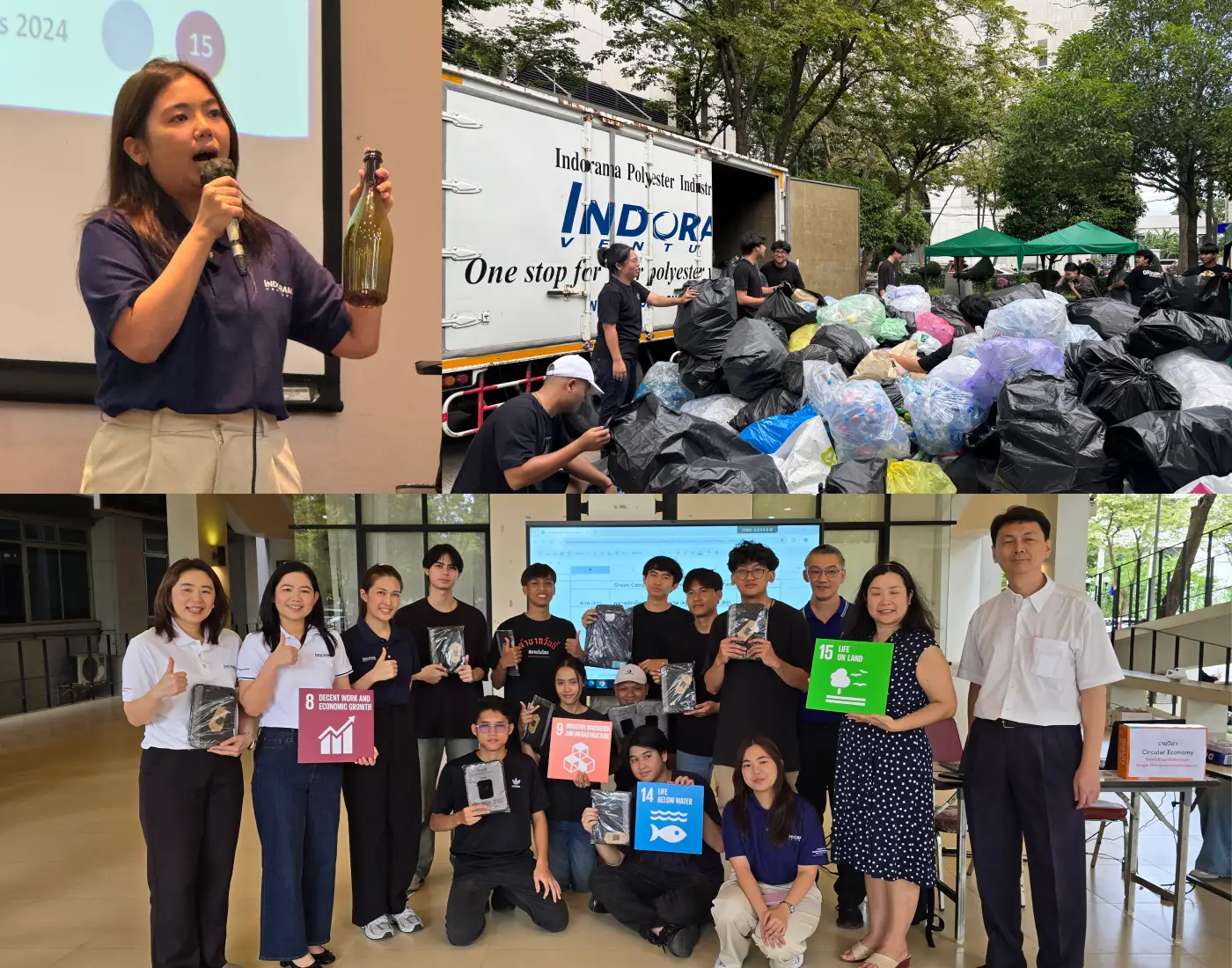
SDGs Collaboration Project Highlights
Green Campus initiative connecting learning and circular living
The Corporate CSR and Sustainability teams joined the Green Campus initiative for the third year with Silpakorn University’s Faculty of Engineering in Nakhon Pathom under the theme Circular Campus – Transforming Universities toward a Sustainable Circular Society.
As guest speakers, our teams engaged over 500 students from Creative, Circular Economy, and Change Agent courses. The CSR team led a session on Waste Sorting and PET Recycling, while the Sustainability team presented Product Innovation, showing how recycled PET can become high-value products supporting the circular economy.
Students collected 1,390 kg of PET bottles (about 92,666 bottles) over three months, sent to our Polyester Operations in Nakhon Pathom for recycling, reducing 1.39 tons of carbon footprint and completing the From Campus to Factory circular loop.
The initiative strengthened youth environmental awareness and reinforced Indorama Ventures’ leadership as a Circular Economy Enabler, contributing to: SDG 4: Quality Education, SDG 12: Responsible Consumption and Production and SDG 13: Climate Action.

PET Bottle Circularity Drive to Encourage Responsible Consumption and Reduce GHG Emissions
Indorama Ventures and the Faculty of Engineering and Industrial Technology at Silpakorn University joined together to drive the SDGs Collaboration Project, as part of the “Green Campus Kickstart: Step One to Sustainability.” This initiative is one of the key components within the “Circular Economy” course and aims to raise awareness about environmental issues caused by plastic waste, while promoting sorting practices in line with the university’s waste management policies. It serves as an inspiration for students to contribute to the circular economy by sustainably utilizing existing resources. This event focused on collecting post-consumer PET bottles for recycling and other environmentally responsible purposes. Initiatives like these play a vital role in reducing plastic waste and promoting sustainability. Indorama Ventures supported Recycling and Circular Economy Education to demonstrate how post-consumer PET bottles can be turned into new products, such as rPET resin and fibers. This aligns with responsible production and consumption (SDG 12), and also delivers other value in terms of carbon footprint reductions (SDG 13) and diverting PET waste from landfills (SDG 10).
Engaging with 300 undergraduate students, professors, and staff, the faculty collectively contributed a total of 900 kilograms of PET bottles during this one-day event. The PET bottles collected were sent for recycling at our recycling plant in Nakhon Pathom, contributing to a GHG reduction of almost one ton
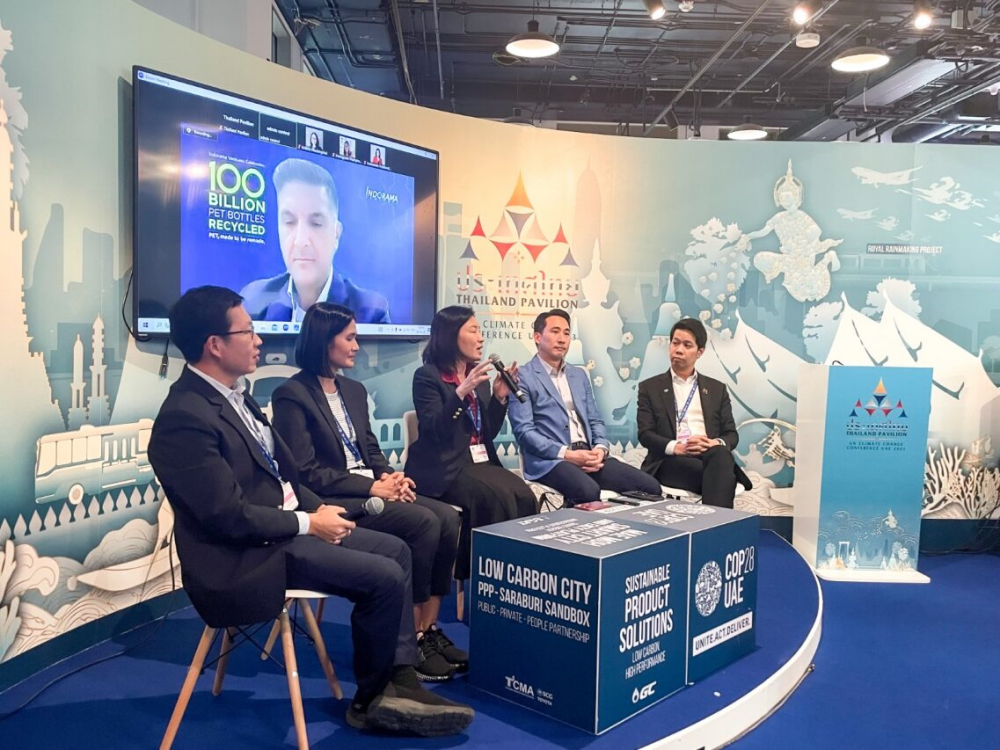
SHARING SUSTAINABLE SOLUTIONS AT THE CLIMATE CHANGE CONFERENCE 2023
At the 28th United Nations Climate Change Conference (COP28), held from November 30 to December 12, 2023, at Expo City in Dubai, Indorama Ventures showcased its innovative sustainability solutions and decarbonization strategy, emphasizing its pioneering investments in developing sustainable solutions to mitigate PET’s environmental impacts while driving the global circular economy. Mr. Yash Lohia, Chairman of the ESG Council, emphasized Indorama Ventures’ commitment to environmental responsibility, pledging to intensify the use of renewable energy, produce low-carbon products, and optimize resource efficiency
Our participation at COP28 underscores collaborative environmental stewardship with the Thai government in addressing global climate challenges. Mr. Anthony M. Watanabe, our Chief Sustainability Officer, took part in a keynote session and panel discussion at the conference, sharing insights on the role of circularity in building a low-carbon world. He highlighted our groundbreaking initiatives, such as the world’s first sustainable monolayer PET sparkling wine bottle and advancements in biotransformation technology for hygiene items with global start-ups like SIPA and Polymateria, which aim to develop sustainable solutions and drive the global circular economy while emphasizing the Company’s dedication to sustainability and climate action.
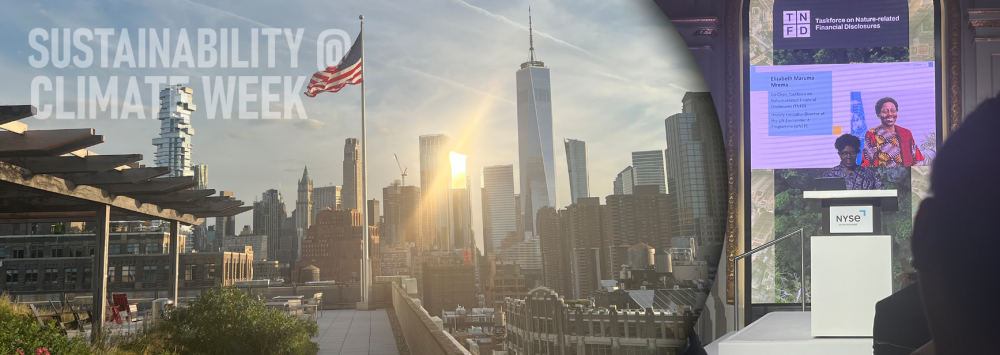
UN Climate Week
In September 2023, Indorama Ventures’ Chief Sustainability Officer, Mr. Anthony M. Watanabe, participated in a series of leadership meetings during UN Climate Week in New York, hosted by the World Economic Forum. These discussions covered a wide range of climate issues, ranging from a global plastics treaty, to promoting circular trade and green foreign direct investment, in addition to building the business case for climate adaptation. The World Economic Forum organizes a Community of Chief Sustainability Leaders, which brings together over 100 Chief Sustainability Officers from top global companies across 24 industries and 28 countries to gain insights and remain updated on the latest nature and climate trends and their impacts on business.
Chief Sustainability Leaders play a vital role in helping CEOs and their organizations navigate this shifting landscape. Among the different topics, climate adaptation is a major concern for the community, not only because of the impacts leaders are already observing in their businesses but also because climate risk is a reporting requirement under the new Corporate Sustainability Reporting Directive (CSRD) framework in the EU.
